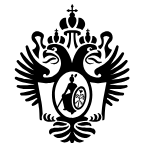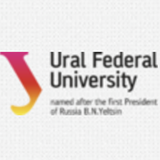Introduction
The Far Eastern Federal University (FEFU) is one of the higher education institutions in the Russian Far East. It is located on the Russian Island in Ajax Bay, Vladivostok, and is a member of the Association of Pacific Rim Universities.
Overview
Student size: As of November 2023, there are about 23,000 students, including more than 3,500 international students from 74 countries.
Faculty: As of February 2024, the school has 1,935 teaching staff, including 291 professors, 894 associate professors, 293 doctors, 934 associate doctors, 160 foreign teachers, honorary professors from the Russian Academy of Sciences and professors from all over the world.
History
On July 9, 1899, Russian Emperor Nicholas II issued a decree to open the Oriental Institute. On October 21 of the same year, the Oriental Institute was established, which is the predecessor of the Far Eastern Federal University. In 1920, the Oriental Institute and several private educational institutions merged to form the National Far Eastern University. In 1930, the National Far Eastern University was reformed and an independent university was established on the basis of its faculties. From 2010 to 2011, according to the decrees of the President of the Russian Federation and the Government, the Far Eastern State University, Ussuriysk State Teacher Training Institute, Far Eastern State Technical University and Pacific State University of Economics merged to form the Far Eastern Federal University.
Establishment time
1899.
School strength
Teaching quality: As an important university in the Russian Far East, the teaching quality is high, focusing on cultivating students' practical ability and innovative thinking. Its curriculum is closely linked to market demand and social development, providing students with a good foundation for career development.
Scientific research results: The school has carried out in-depth scientific research in many fields and achieved a series of important results, such as research results in the fields of marine science, biotechnology, materials science, etc., which have made important contributions to the economic and social development of the Russian Far East.
International exchanges: Actively carry out international cooperation and exchanges, and cooperate with 240 It cooperates with many international partners, including the United Nations, UNESCO, the G20, the BRICS, ASEAN, the Asia-Europe Meeting, the Asia-Pacific Economic Cooperation, the Association of Pacific Rim Universities, etc. It has also established cooperative relations with many Chinese universities, providing students with a broad international exchange platform.
Institutional Nature
Public research university.
Educational Philosophy
Committed to integrating the two models of modern research universities and entrepreneurial universities, focusing on cultivating students' innovation and practical abilities, providing talent support for the competitive development areas of the national economy, and actively participating in regional social, economic and cultural development, and promoting international academic exchanges and cooperation.
Key laboratories and disciplines
Key laboratories: The school has many advanced laboratories, such as the New Federal University Laboratory Building visited by Putin in 2014, which concentrates the university's largest scientific laboratories and world-class experimental equipment. In addition, the chemistry, biology, and physics laboratories of the School of Natural Sciences also have a good foundation in instruments and processes.
Key disciplines: Oriental Studies of the School of Regional and International Studies, Medicine of the School of Biomedicine, Instrument Engineering of the School of Engineering, and Physics of the School of Natural Sciences are all advantageous disciplines of the school.
Department
The school has 9 colleges, namely, the School of Oriental Studies - School of Regional and International Studies, School of Humanities, School of Engineering, Teacher Training College, School of Law, School of Biomedicine, School of Economics and Management Sciences, School of Natural Sciences, and School of Arts, Literature, and Sports.
Ranking
2021 Times Higher Education World University Rankings: 1201+.
2023 QS World University Rankings: 434.
2022-2023 U.S. News Global Best University Rankings: 1578, 557th among the best global universities in Europe, 20th among the best global universities in Russia, and its physics major ranked 713th .
Expenses
Tuition fees vary by major. The following is a reference for some majors: undergraduate tuition fees for general majors are about US$2,000-3,000 per year, and tuition fees for special majors such as medicine may be higher, about US$4,000-5,000 per year.
Campus
Teaching facilities: The campus covers an area of 80 hectares and has modern teaching facilities, such as the School of Engineering equipped with the latest high-tech equipment, computing technology tools and software; the School of Biomedical Sciences has a modern university clinic, etc. In addition, the school also has a research library with more than 2 million books, and provides full-text online access to thousands of journals worldwide through 71 national and international electronic databases.
Dormitory conditions: There are comfortable and safe dormitories on campus, providing students with a good living environment. The surrounding supporting facilities of the dormitories are complete and can meet the daily needs of students.
-

Peter the Great St.Petersburg Polytechnic University
-

Moscow State University M. V. Lomonosov
-

Bauman Moscow State Technical University
-

St. Petersburg State University
-

Tomsk State University
-

Peoples' Friendship University of Russia
-

Don State Technical University
-

Ural Federal University
-

Moscow Institute of Physics and Technology
-

Kazan Federal University
-

Mesoamerican University
-

Istmo University
-

Mariano Galvez University of Guatemala
-

Regional University of Guatemala
-

Galileo University
-

Francisco Marroquín University
-

Rafael Landívar University
-

University of the Valley of Guatemala
-

University of San Carlos of Guatemala
-

Technological Institute of Tlaxcala Plateau
-

Golfo University
-

Technological University of South Sonora
-

Technological University of Huejotzingo
-

Tizimín Institute of Technology
-

Chilpancingo Institute of Technology

